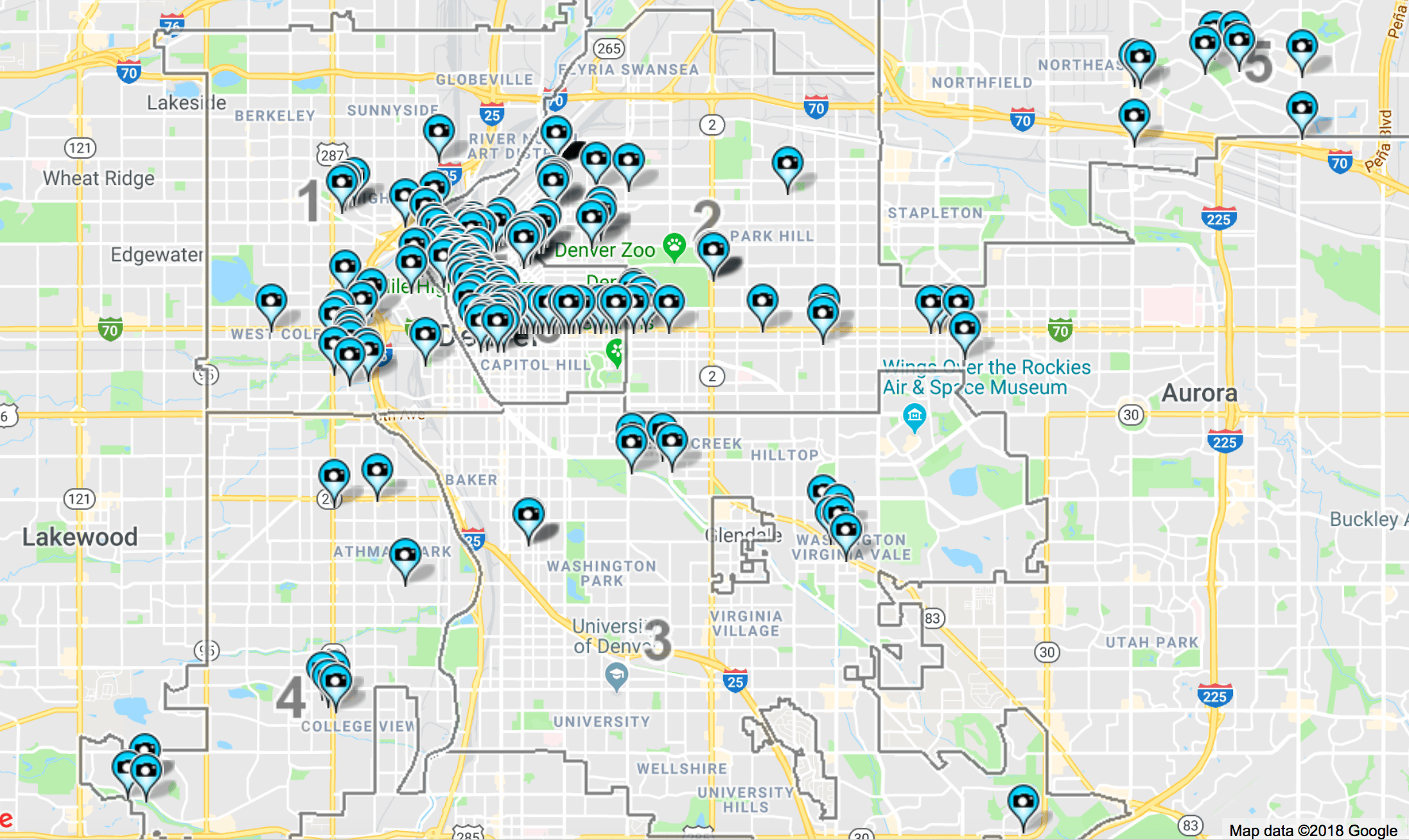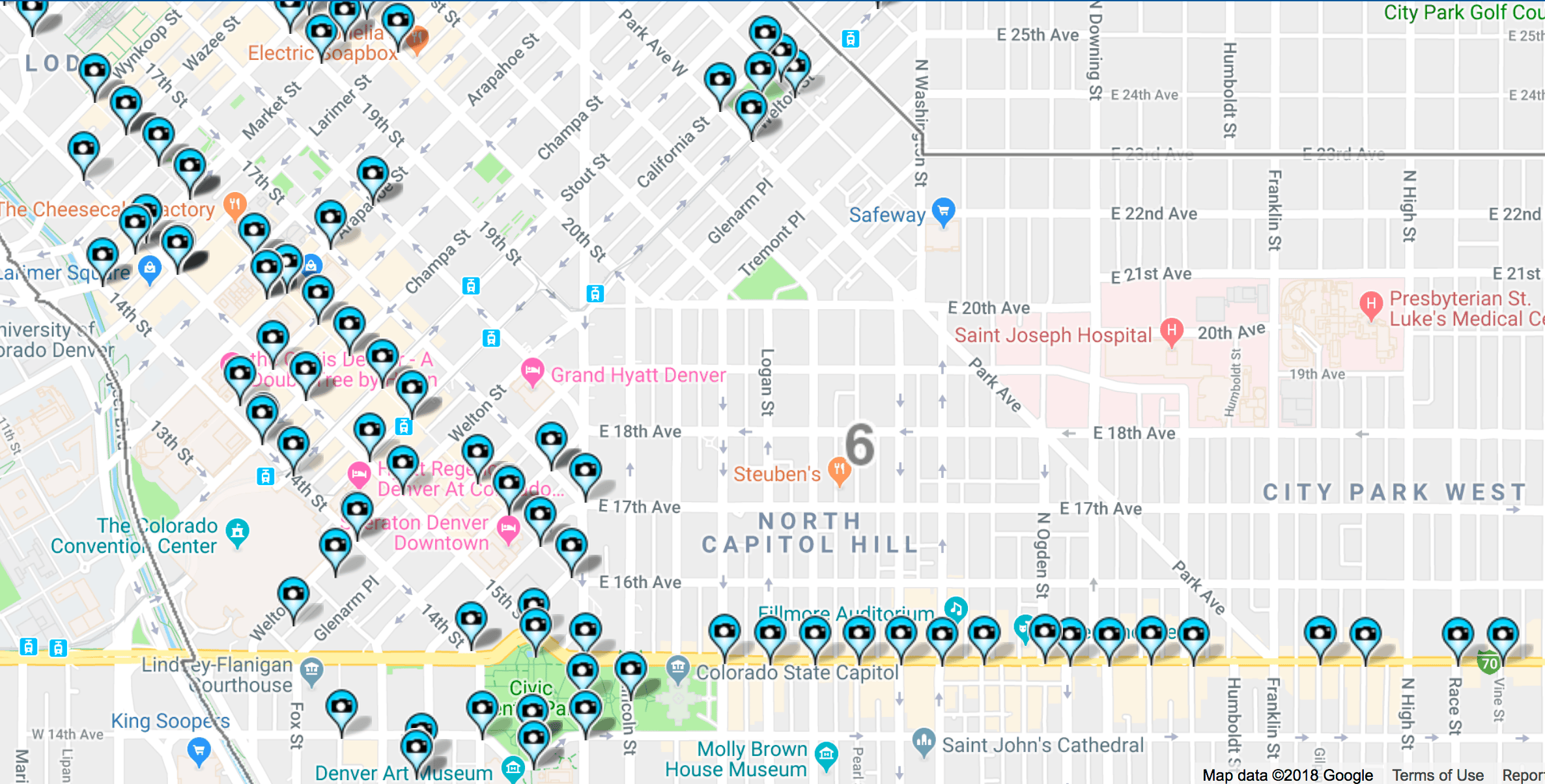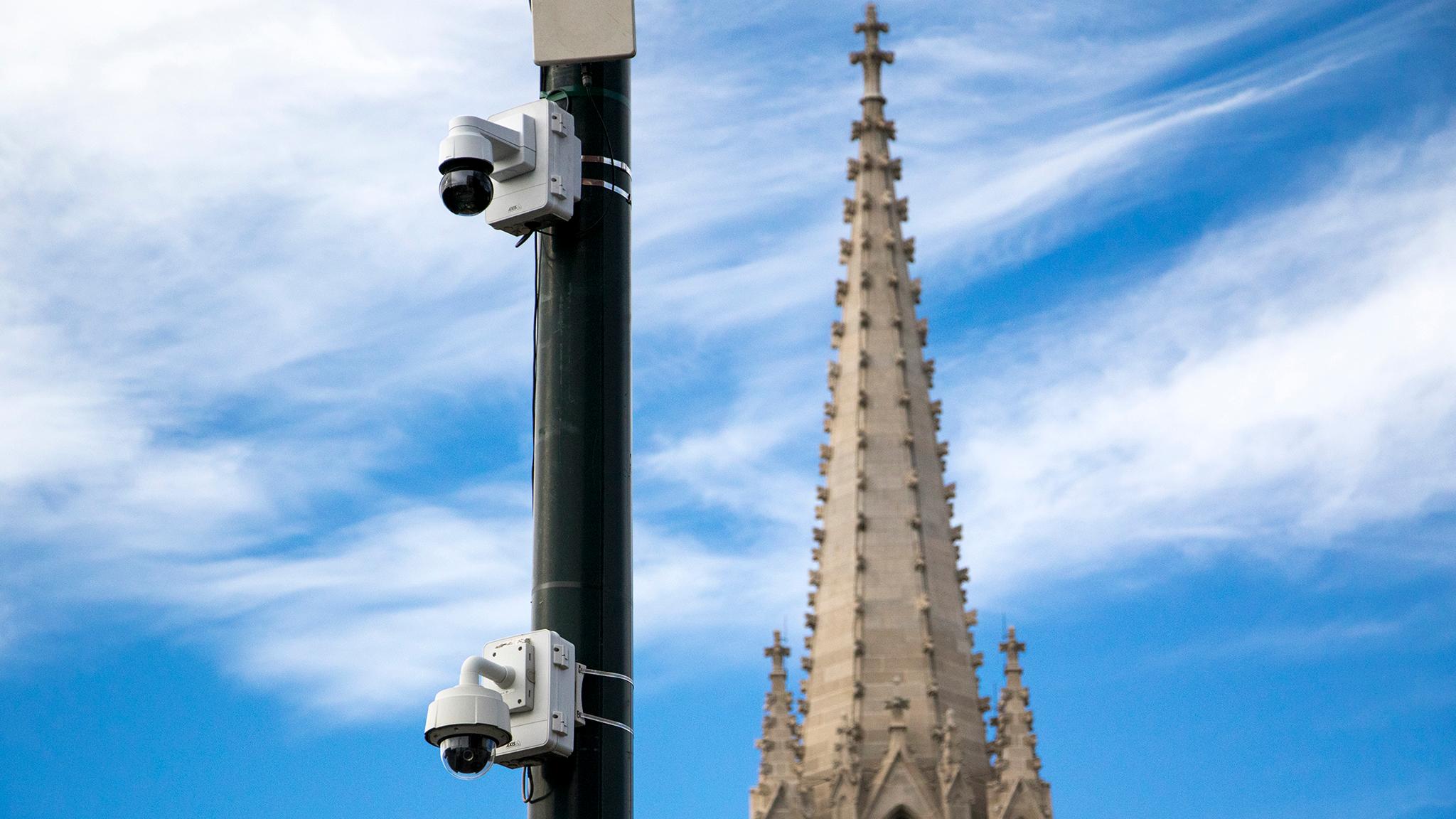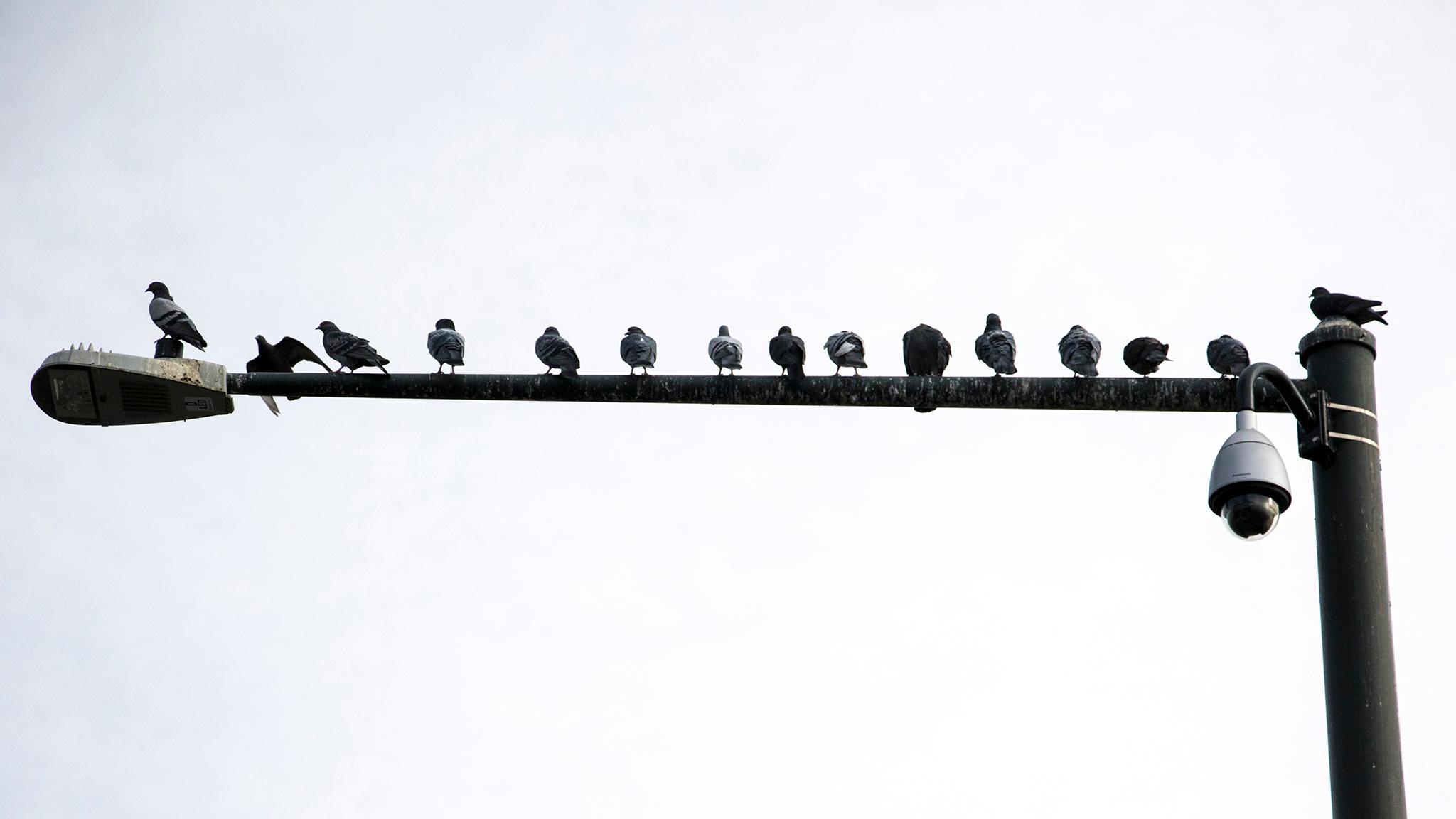Should I reference Big Brother? Too late.
The Denver Police Department operates 256 video cameras at busy spots around the city in the name of public safety, and here's a map that shows every single one.

(You can check the interactive map out for yourself.)
If you're in the business, you call these things "HALO" cameras. That stands for high activity location cameras. They first came to the city through a grant used to outfit the Denver National Convention with security in 2008.
And they're still watching over us -- especially on Colfax Avenue (which sports 28) and the 16th Street Mall.
"By definition, HALO is a high activity location camera, so they main focus of those cameras is on places with a lot of activity," said Sergent Mark Beveridge, who oversees the program.
The DPD operations manual goes further, stating police should consult criminal justice records, crime data and risk assessments when choosing camera posts.

Cops can use the cameras to search for a suspect, but otherwise the cameras cannot base their use on characteristics or classifications like race, gender, sexual orientation, national origin, or disability, according to the manual.
One of the ideas behind the cameras is that they'll deter people from criminal activity of all kinds, and make neighbors feel safer. Perhaps ironically, the surveillance aims to "safeguard citizen and police officer rights," the handbook states.
HALOs are controlled remotely from a command center. Images are purged after 30 days. They're meant to keep people safe first and prosecute people second, according to Beveridge.

"When you delve into a situation of prosecution... I can tell you that it is of great value to the detectives and investigators to present in their cases," Beveridge said. "'A picture is worth a thousand words' applies here."
His division gets multiple requests for footage from investigators every day, and Beveridge says the city could always use more. He points to places like New York, which he says has more than 15,000 HALO cameras, and European cities that seem to have cameras "on every single corner." As for peer cities, Minneapolis has about 200, according to MinnPost. Austin has just 41, KVUE reports.
The cameras cost about $5,000 each. DPD has an annual contract with Hitachi worth $144,000 to maintain the cameras and replace them if necessary.













